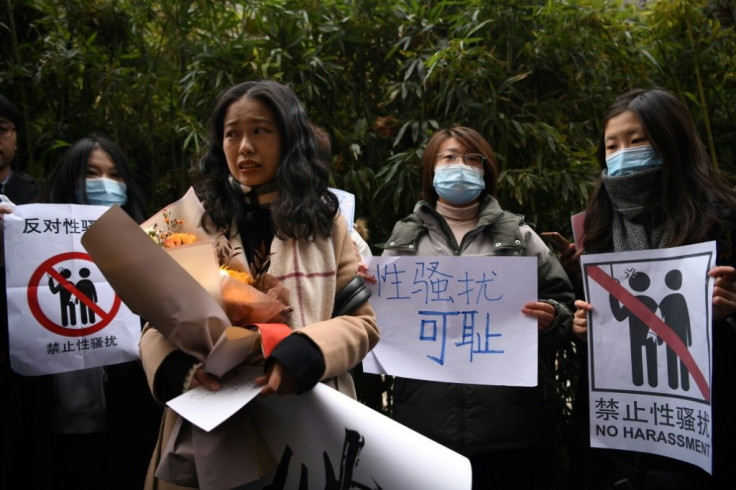China Continues Silencing #MeToo Activists

It has been two years since the #MeToo movement caught traction in China as several influential cases shook an entire country where freedom of speech is highly restricted. Despite the movement’s growth, Chinese feminists still struggle to speak up as the government does everything in its power to silence the country’s 1.4 billion people.
Though Chinese activists have raised awareness, promoted legal reform and built a strong community network through decentralized activism and global support, they still struggle to form a larger national movement.
Since the movement took off in 2018, several influential people have spoken out about their experiences and many women have revealed that they were sexually harassed. More often than not, these women are silenced and never heard from again.
The ruling Communist Party’s control over the Internet, media and independent activism is the tightest it has been in 30 years, The Human Rights Watch reported.
“China’s party-state has zero tolerance for collective actions, so the country’s #MeToo movement has never been able to manifest in mass street protests. But individual victims have taken their cases to court, demonstrating extraordinary determination and resilience,” Yaqiu Wang, HRW China Senior Researcher, said in a report.
In 2018, the Chinese Supreme court added sexual harassment to the list of “causes of action,” making it easier for victims to seek redress thanks to pressure from the #MeToo movement.
However, there is still a lack of concrete laws against sexual harassment and the current system does not prevent the government from going after victims who speak up.
Most recently, professional Chinese tennis player Peng Shuai accused a former vice-premier of China’s Communist Party of sexual assault, marking the first time a prominent Chinese politician has been publicly accused of sexual assault.
Peng, 35, made the allegations on her official account on the social platform Weibo, China’s version of Twitter. The post, which was almost immediately taken down, described an assault that began following an on-and-off consensual relationship with Zhang Gaoli, the New York Times noted.
Soon after, Peng’s accusations were deleted from the Internet and she went missing for three weeks. She recently spoke to the International Olympic Committee, saying she was “safe and well” but IOC President Thomas Bach said he was not convinced.
Why is China silencing #MeToo Activists? The answer is power.
The global #MeToo movement has often led to the downfall of many prominent men, including politicians. That's bound to make Chinese leaders nervous, Leta Hong Fincher, author of the forthcoming book "Betraying Big Brother: The Feminist Awakening in China," told the Washington Post.
So when women speak up, the government is quick to censor them by deleting their posts and blocking social media hashtags and keywords.
In fact, the phrase #MeToo is still blocked.
Not only have some women's posts been censored on social media, but powerful perpetrators are habitually protected by the Chinese state while women's rights groups are treated with suspicion by the Communist Party and branded as agents of foreign interference, Chinese women's rights activists Ye Haiyan told the Post.
This, combined with the lack of investigative reporting by the media, makes it extremely difficult to bring down influential people like U.S. media mogul Harvey Weinstein and former New York Gov. Andrew Cuomo.
"As long as the Communist Party remains in power, it's arguable China will never be ready for a #MeToo movement," Fincher said.





















